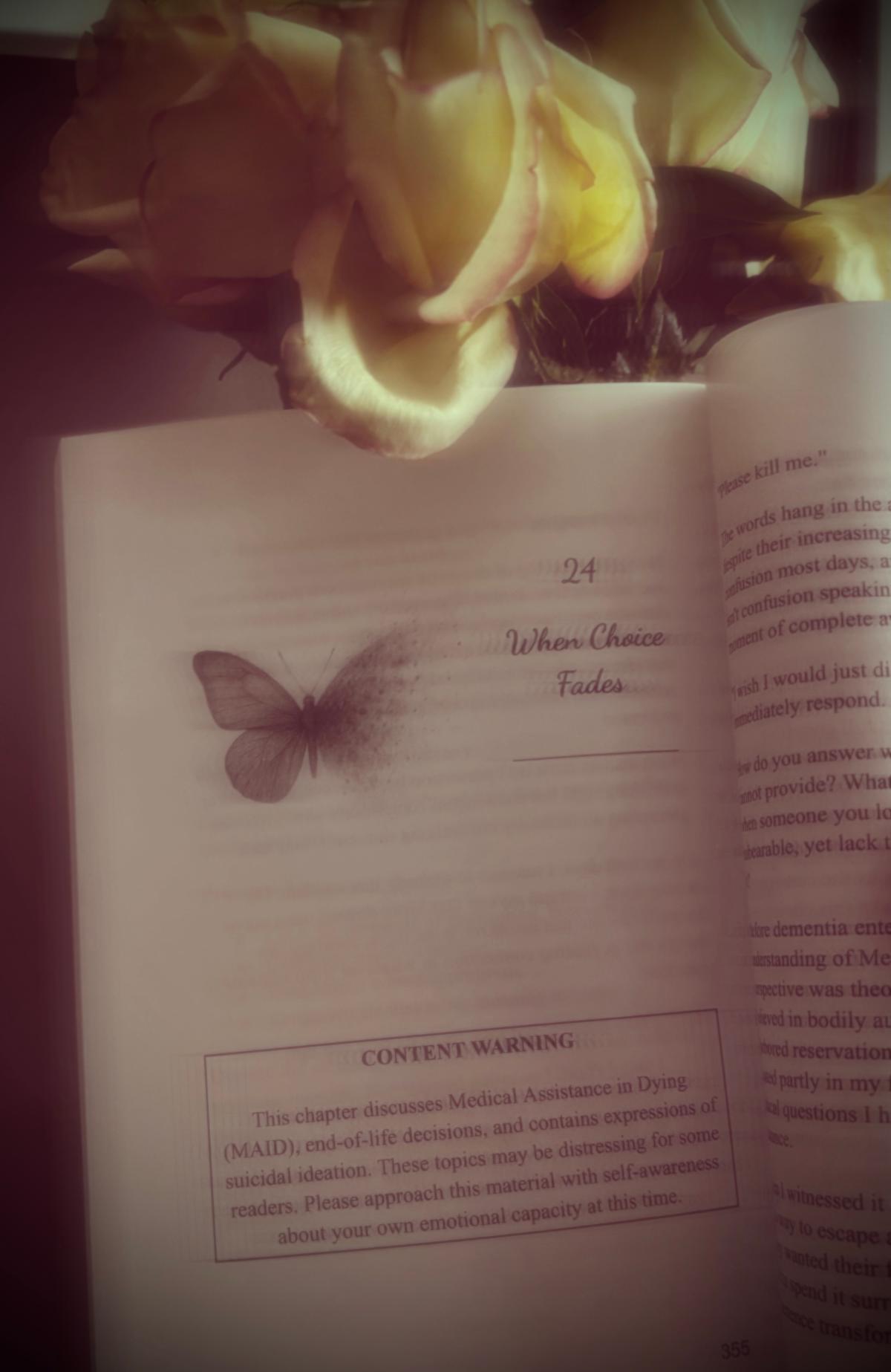Content Warning: This post discusses dementia, end-of-life choices, and MAID.
Robert Munsch’s recent decision has opened a public conversation I’ve been having in private for years. His courage to speak about autonomy at the end of life struck me deeply, because it echoes what I’ve witnessed up close.
In Chapter 24 of All These Beautiful Things, I wrote about two very different experiences. Years ago, I watched someone I loved choose MAID during a cancer battle. Seeing that changed everything I thought I believed. What was once abstract and theoretical became real and profoundly compassionate. Their choice gave them dignity and gave those who loved them the gift of a peaceful, intentional goodbye.
But my mom’s journey with dementia has been cruelly different. In rare moments of lucidity, she has looked at me and said, “This isn’t living.” She understood enough to know she didn’t want to continue this way, yet she no longer had the consistent cognitive capacity the law requires to make that choice. By the time the reality she feared most had arrived, the possibility of acting on her wishes had slipped away.
That is the heartbreak of dementia. The law protects vulnerable people — and those safeguards absolutely matter — but it can also create a different kind of cruelty when autonomy disappears before the decision can be honored. For caregivers, that contradiction lives in the same space as folding laundry, answering the same questions for the hundredth time, or sitting beside a loved one through another night of restlessness and grief. Knowing what your loved one would want, yet being unable to help, is its own kind of suffering.
What I’ve learned, painfully and slowly, is that presence matters. When I stop trying to redirect or reassure and instead simply say, “I hear you. I understand,” something shifts. In that raw honesty, my mom feels seen. Relief washes over her face. Even when we can’t change her circumstances, we can face them together without pretense.
Robert Munsch’s decision reminded me that courage can look like choosing. And sometimes, when choice has faded, courage looks like bearing witness with love.
If you are walking a similar path, know this: you don’t need perfect answers. You don’t need to fix everything. Sometimes the greatest gift is simply to sit, to listen, and to hold space for the truth of someone you love.
#AllTheseBeautifulThings #RobertMunsch #DementiaAwareness #EndOfLifeChoices #MAID #CaregiverLife #CaregiverSupport #CompassionateCare #Autonomy #GriefAndLove #HoldingSpace
